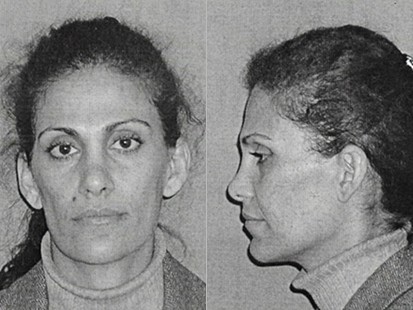(UTC) |
| Welcome, Guest. Please Login or Register |

|
|
|
You can enhance your privacy when browsing and posting to this forum by using the free and open source Tor Browser and posting as a guest (using a fake e-mail address such as nobody@nowhere.com) or registering with a free, anonymous ProtonMail e-mail account. Registered users can exchange private messages with other registered users and receive notifications. In addition, check out our live chat server. |
||
| Topic Summary - Displaying 24 post(s). |
|
Posted by: George W. Maschke Posted on: Mar 30th, 2010 at 4:30pm |

|
|
Posted by: George W. Maschke Posted on: Mar 29th, 2010 at 1:47pm |
|
|
Posted by: WJ Posted on: Jan 6th, 2008 at 7:16pm |
|
|
Posted by: SanchoPanza Posted on: Jan 6th, 2008 at 5:28pm |
|
|
Posted by: WJ Posted on: Jan 6th, 2008 at 4:34pm |
|
|
Posted by: nopolycop Posted on: Nov 20th, 2007 at 3:24pm |
|
|
Posted by: Barry_C Posted on: Nov 20th, 2007 at 2:27pm |
|
|
Posted by: 1904 - Ex Member Posted on: Nov 20th, 2007 at 12:58pm |
|
|
Posted by: nopolycop Posted on: Nov 20th, 2007 at 6:07am |
|
|
Posted by: nopolycop Posted on: Nov 20th, 2007 at 5:53am |

|
|
Posted by: Sergeant1107 Posted on: Nov 20th, 2007 at 4:52am |
|
|
Posted by: George W. Maschke Posted on: Nov 20th, 2007 at 4:47am |
|
|
Posted by: Barry_C Posted on: Nov 20th, 2007 at 2:05am |

|
|
Posted by: nopolycop Posted on: Nov 16th, 2007 at 6:38pm |

|
|
Posted by: George W. Maschke Posted on: Nov 16th, 2007 at 4:38pm |
|
|
Posted by: Fair Chance Posted on: Nov 16th, 2007 at 3:34am |
|
|
Posted by: nopolycop Posted on: Nov 16th, 2007 at 3:08am |
|
|
Posted by: George W. Maschke Posted on: Nov 15th, 2007 at 4:15pm |
|
|
Posted by: nopolycop Posted on: Nov 15th, 2007 at 4:06pm |
|
|
Posted by: George W. Maschke Posted on: Nov 15th, 2007 at 2:56pm |
|
|
Posted by: nopolycop Posted on: Nov 15th, 2007 at 2:38pm |

|
|
Posted by: 1904 - Ex Member Posted on: Nov 15th, 2007 at 9:19am |

|
|
Posted by: polyfool Posted on: Nov 15th, 2007 at 3:38am |

|
|
Posted by: George W. Maschke Posted on: Nov 14th, 2007 at 9:59am |
|
 |
AntiPolygraph.org Message Board » Powered by YaBB 2.6.12!
YaBB Forum Software © 2000-2024. All Rights Reserved.







